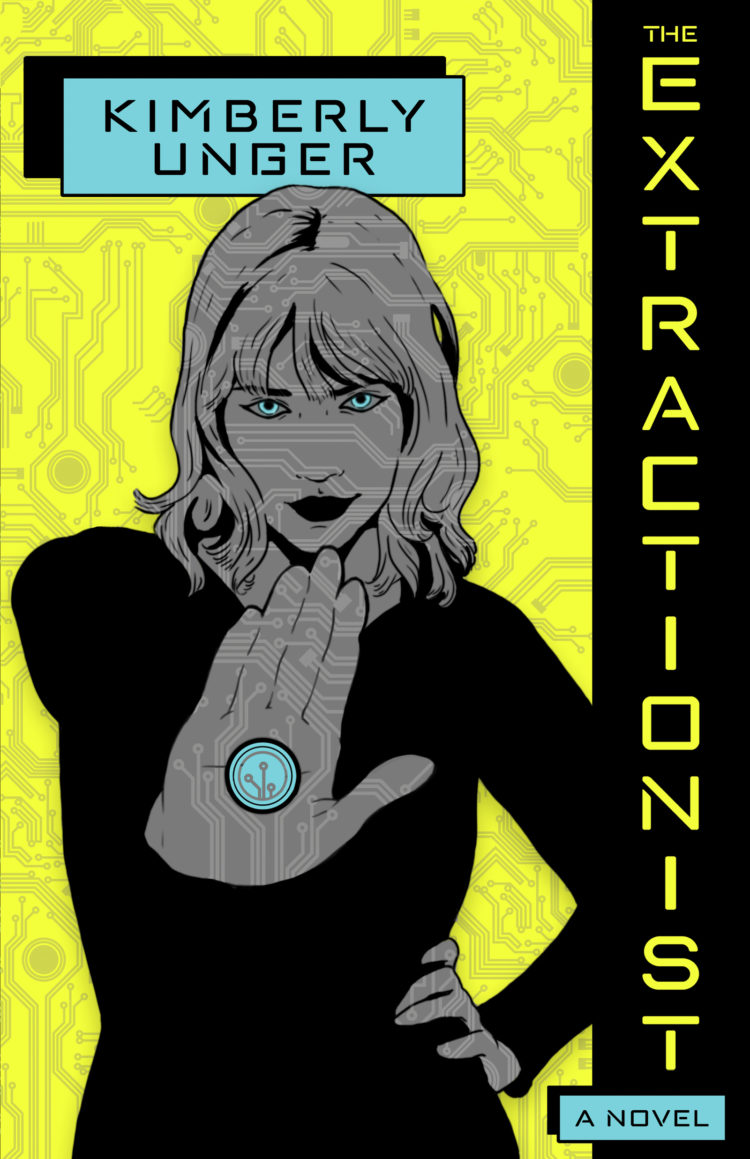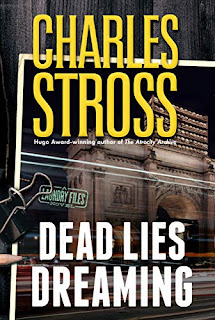Full of fascinating details, Kimberly Unger’s THE EXTRACTIONIST delivers vivid and highly imaginative hard science fiction

Deborah J. Ross on their eponymous site praises Kimberly Unger’s new technothriller THE EXTRACTIONIST.
Like Unger’s debut novel, NUCLEATION, THE EXTRACTIONIST features vivid and highly imaginative hard science fiction world-building. I’m not a tech person or familiar with virtual reality, but the characters and situations were compelling enough to keep me reading, and eventually the internal consistency made sense to me. The story is full of fascinating details, like the need to replace neurotransmitter chemicals after a prolonged VR session. Unger writes with the ease of familiarity with challenging technical material, so that even if I couldn’t explain what was happening, I knew she could. The sureness of an author’s voice can carry us into worlds and situations we’ve never experienced for ourselves. Unger’s work is cutting-edge science fiction. I can hardly wait to see what she comes up with next!
For Nerds of a Feather, Flock Together, Unger participates in 6 Books interview.
1. What book are you currently reading?
I have, in my hot little hands, both Quantum of Nightmares and Dead Lies Dreaming by Charles Stross. I’m a fan of all his work, but the Laundry Files strike a particular chord for anyone who has 1. spent significant waking business hours in some form of cubicle hell and 2. who has witnessed first hand the way bureaucracies have begun to evolve to handle agile and fast moving threats.
Unger discusses cyberpunk with Megan Leigh on the Breaking the Glass Slipper podcast.
These days, ‘punk’ is added to a whole host of different genres, sub-genres, and words never before used to indicate book genres before. But there was once only one kind of literary punk: cyberpunk.
Pioneered in the 1980s by authors like Pat Cadigan, William Gibson, and Bruce Sterling, cyberpunk imagined a dystopian world of advanced technology and crime. In the face of unprecedented levels of corruption on an incredible scale, cyberpunk stories are populated with down-on-their-luck rebels intent on overthrowing the ruling classes, usually by way of their expert tech skills.
Borrowing heavily from tropes in film noir, cyberpunk tends to be gritty, dark, and pessimistic. But has the genre changed since it first came on the scene? Are we finding more optimism in feminist cyberpunk narratives? And why is thriller cyberpunk’s the natural genre companion?
“Cyberpunk is tech in conflict with its creator.”
Kimberly Unger

